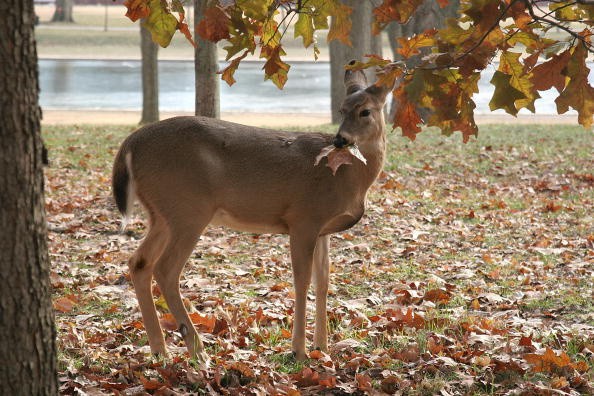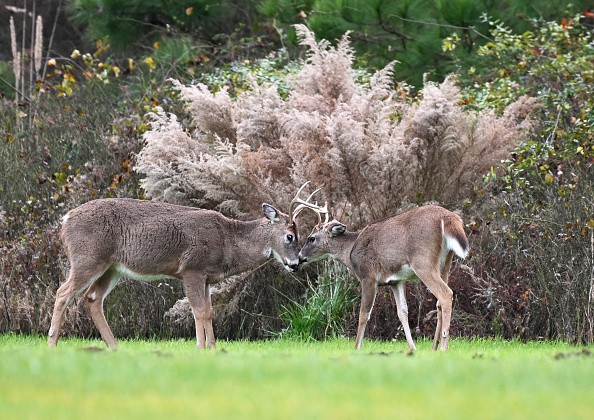
Coronavirus in Deer
Human health is connected with that of animals, and ignoring other species might extend the pandemic.
According to this research, around one-third of the deer studied had ongoing or recently active diseases. A similar study of tissue from roadkill and hunted deer in Iowa discovered extensive indications of the virus.
Coronavirus may be spreading in a free-roaming species in the United States that is estimated to number 30 million. However, experts think it's plausible that the virus may be transmitted from deer to humans, according to NBC News.
Human health is connected with animal health, and failing to consider the needs of other species may only serve to prolong the epidemic and make it more difficult to combat Covid.
The virus might pose a threat to humans if it spreads widely in deer and deer mutations develop a new form. Some of the viral varieties that are no longer present in people may be able to reappear in the future because of the virus' presence in wild animals.
Is Transmission Within Other Species Possible?
After a short time, scientists were afraid that the virus may spread to other species. Many animals, including deer, have receptors that may enable the virus to attach to their cells, according to one research.
To see whether the coronavirus might infect four fawns in a laboratory investigation, researchers spritzed their nostrils with the virus. Separating the diseased deer from the healthy ones with a plexiglass wall that didn't reach the ceiling was also done.
The researchers used two contact animals and four inoculated animals in this study. A large quantity of infectious virus was shed by everyone who was exposed to the virus. As an associate professor of virology at Cornell University who was involved in the study, Diego Diel expressed astonishment at the findings.
According to Diel, the virus was most likely spread by airborne nasal secretions from the infected deer. The infected animals showed no signs of illness. Transmission is an issue since deer commonly wander in groups and brush noses.
The blood of wild deer in Illinois, Michigan, New York, and Pennsylvania was examined by government experts. In the end, they evaluated 624 samples and found that around 40% of samples obtained last year had antibodies that indicated previous infection.
Recent research shows that the infection is current and recent.

Effects of Circulation in Deer
Research shows that the virus spreads from people to deer many times in different locations. Researchers don't know for sure how the deer get infected or if the virus will remain in the deer population.
Variants that are no longer infecting people, like the alpha variant, might continue cycling in animals if they circulate in deer populations. Kuchipudi believes that letting these strains to re-emerge would allow them to be reintroduced to the general population.
Alternatively, if the virus is widely transmitted, mutations in deer might accumulate and develop before it mutates and spreads to humans.
Dutch mink farms experienced this in 2020. After the virus transferred from humans to mink, it returned to humans with additional variations.
For this reason, Kuchipudi believes that the virus might evolve to fit a new host species.The virus could also recombine with other coronaviruses already present in deer to create a hybrid virus, which some scientists believe is unlikely.
If deer are to be a permanent host, these will be a long-term concerns.
For more news, updates about deers and similar topics don't forget to follow Nature World News!
© 2025 NatureWorldNews.com All rights reserved. Do not reproduce without permission.





